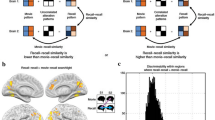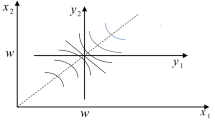Abstract
The focus of this study is cognitive choice: the selection of one cognitive option (a hypothesis, a theory, or an axiom, for instance) rather than another. The study proposes that cognitive choice should be based on the plausibilities of states posited by rival cognitive options and the utilities of these options' information outcomes. The proposal introduces a form of decision theory that is novel because comparative; it permits many choices among cognitive options to be based on merely comparative plausibilities and utilities. This form of decision theory intersects with recommendations by advocates of decision theory for cognitive choice, on the one hand, and defenders of comparative evaluation of scientific hypotheses and theories, on the other. But it differs from prior decision-theoretic proposals because it requires no more than minimal precision in specifying plausibilities and utilities. And it differs from comparative proposals because none has shown how comparative evaluations can be carried out within a decision-theoretic framework.
Similar content being viewed by others
Notes
The term ‘real agents’ includes software agents that may not be appropriately programmable with point-valued probabilities and utilities (Chu and Halpern 2008, 4–5, 25).
I have adapted Chu and Halpern’s set-theoretic statement to the propositional idiom.
The example is adapted from Fishburn (1986, 339).
This example is discussed in Levi (1986, 1–2).
Paul Samuelson’s observation on Savage’s theory (along with Ramsey’s and de Finetti’s) is still worth noting: “it is important to realize that this is a purely ordinal theory and the same facts can be completely described without using privileged numerical indicators of utility or probability” (1952, 670 n1).
‘|’, which was defined in Section 2.2f) for incomparable plausibilities, utilities, and plausibilistic expectations, is used analogously here. A product such as uP can be thought of as the plausibilistic expectation of an act relative to a single state.
Cf. “In nonquantitative cases the principle to maximize utility may not apply because options’ utilities may not exist. The absence of crucial probabilities and utilities may prevent computing them according to principles of expected utility analysis” (Weirich 2004, 59).
Distinctions among cognitive, partly cognitive, and noncognitive decisions are introduced in Section 2.2c).
I am grateful to an anonymous reviewer for European Journal for Philosophy of Science for raising this point.
An analogous distinction can be drawn for probability. “Whether or not a given sentence is accepted depends not so much on its total probability taken in isolation, but on that probability as compared to the probabilities of the alternative hypotheses being considered” (Levi 1967, 98).
Here I am indebted to an anonymous reviewer for European Journal for Philosophy of Science.
Maher takes independence to be a requirement of rationality “when the preferences are relevant to a sufficiently important decision problem, and where there are no rewards attached to violating … independence” (1993, 12, 63–83).
An alternative approach is explored by Ted Lockhart, who relies on ordinal probability rankings, second-order probabilities, integration to calculate average values, and the principle of indifference to address moral questions (2000, 62–66, 71–72).
Transitivity is discussed in greater depth in the writer’s “Real-Life Decisions and Decision Theory” (forthcoming).
References
Aumann, R. J. (1962). Utility theory without the completeness axiom. Econometrica, 30, 445–462.
Baumann, P. (2005). Theory choice and the intransitivity of ‘is a better theory than’. Philosophy of Science, 72, 231–240.
Behn, R. D., & Vaupel, J. W. (1982). Quick analysis for busy decision makers. New York: Basic Books.
Black, M. (1985). Making intelligent choices: how useful is decision theory? Dialectica, 39, 19–34.
Bryson, B. (2003). A short history of nearly everything. New York: Broadway Books.
Chu, F. C., & Halpern, J. Y. (2004). Great expectations. Part II: generalized expected utility as a universal decision rule. Artificial Intelligence, 159, 207–229.
Chu, F. C., & Halpern, J. Y. (2008). Great expectations. Part I: on the customizability of generalized expected utility. Theory and Decision, 64, 1–36.
de Finetti, B. (1937). La prévision, ses lois logiques, ses sources subjectives. Annales de l’Institut Henri Poincaré, 7, 1–68. Trans. Foresight: Its Logical Laws, Its Subjective Sources. In Henry E. Kyburg and Howard E. Smokler (Eds.), Studies in Subjective Probability (pp. 53–118). New York: Krieger, 1980.
Dewey, J., & Tufts, J. H. (1932). Ethics, rev. ed. New York: Holt.
Elster, J. (1979). Ulysses and the Sirens: Studies in rationality and irrationality. Cambridge: Cambridge University Press.
Elster, J. (2000). Ulysses unbound: Studies in rationality, precommitment, and constraints. Cambridge: Cambridge University Press.
Festa, R. (1999). Scientific values, probability, and acceptance. In R. Rossini Favretti, G. Sandri, & R. Scazzieri (Eds.), Incommensurability and translation: Kuhnian perpectives on scientific communication and theory change (pp. 323–338). Cheltenham: Elgar.
Fishburn, P. C. (1986). The axioms of subjective probability. Statistical Science, 1, 335–358.
Fishburn, P. C. (1991). Non-transitive preferences in decision theory. Journal of Risk and Uncertainty, 4, 113–134.
Floridi, L. (2004). Outline of a theory of strongly semantic information. Minds and Machines, 14, 197–221.
Franklin, J. (2001). The science of conjecture: Evidence and probability before Pascal. Baltimore and London: The Johns Hopkins University Press.
Friedman, N., & Halpern, J. Y. (1995). Plausibility measures: A user’s guide. In P. Besnard & S. Hanks (Eds.), Proceedings of the Eleventh Conference on Uncertainty in Artificial Intelligence (UAI ‘95) (pp. 175–184). San Mateo: Kaufmann.
Gärdenfors, P., & Sahlin, N.-E. (1982). Unreliable probabilities, risk taking, and decision making. Synthese, 53, 361–386.
Giere, R. N. (1985). Constructive realism. In P. M. Churchland & C. A. Hooker (Eds.), Images of science (pp. 75–98). Chicago: University of Chicago Press.
Good, I. J. (1962). Subjective probability as the measure of a non-measurable set. In P. Suppes, E. Nagel, & A. Tarski (Eds.), Logic, methodology, and the philosophy of science (pp. 319–329). Stanford: Stanford University Press.
Gowans, C. W. (1987). Moral dilemmas. New York: Oxford University Press.
Greenspan, P. (1983). Moral dilemmas and guilt. Philosophical Studies, 43, 117–125.
Halpern, J. Y. (2003). Reasoning about uncertainty. Cambridge: The MIT Press.
Hempel, C. G. (1960). Inductive inconsistencies. Synthese, 12, 439–469. Rpt. in Aspects of Scientific Explanation, Carl G. Hempel (pp. 53–79). New York: The Free Press and London: Collier Macmillan, 1965.
Hintikka, J. (1970a). On semantic information. In J. Hintikka & P. Suppes (Eds.), Information and inference (pp. 3–27). Dordrecht: Reidel.
Hintikka, J. (1970b). Surface information and depth information. In J. Hintikka & P. Suppes (Eds.), Information and inference (pp. 263–297). Dordrecht: Reidel.
Hintikka, J. (1983). The game of language: Studies in game-theoretical semantics and its applications. Dordrecht: Reidel.
Hintikka, J., & Pietarinen, J. (1966). Semantic information and inductive logic. In J. Hintikka & P. Suppes (Eds.), Aspects of inductive logic (pp. 96–112). Amsterdam: North-Holland.
Hughes, R. I. G. (1980). Rationality and intransitive preferences. Analysis, 40, 132–134.
Irvine, W. B. (2006). On desire: Why we want what we want. Oxford: Oxford University Press.
James, W. (1897). The will to believe, and other essays in popular philosophy. New York: Longmans, Green & Co. Rpt. Cambridge, MA and London: Harvard University Press, 1979.
Jeffrey, R. C. (1983). The logic of decision (2nd ed.). Chicago: University of Chicago Press.
Jeffreys, H. (1931). Scientific inference. Cambridge: Cambridge University Press.
Jeffreys, H. (1961). Theory of probability (3rd ed.). Oxford: Clarendon.
Jensen, N. E. (1967). An introduction to Bernoullian utility theory: I. Utility functions. Swedish Journal of Economics, 69, 163–183.
Kaplan, M. (1981). A Bayesian theory of rational acceptance. The Journal of Philosophy, 78, 305–330.
Kaplan, M. (1996). Decision theory as philosophy. Cambridge: Cambridge University Press.
Keynes, J. M. (1921). A treatise on probability. London: Macmillan. Rpt. Mineola: Dover, 2004.
Klir, G. J. (2006). Uncertainty and information: Foundations of generalized information theory. Hoboken: Wiley.
Kuhn, T. S. (1970). The structure of scientific revolutions (2nd ed.). Chicago: University of Chicago Press.
Kyburg, H. E., Jr. (1961). Probability and the logic of rational belief. Middletown: Wesleyan University Press.
Kyburg, H. E., Jr. (1979). Tyche and athena. Synthese, 40, 415–438.
Laudan, L. (1984). Science and values: The aims of science and their role in scientific debate. Berkeley: University of California Press.
Levi, I. (1967). Gambling with truth: An essay on induction and the aims of science. New York: Knopf.
Levi, I. (1974). On indeterminate probabilities. The Journal of Philosophy, 71, 391–418.
Levi, I. (1984). Information and inference. Decisions and revisions, Isaac Levi (pp. 51–69). Cambridge: Cambridge University Press.
Levi, I. (1986). Hard choices: Decision making under unresolved conflict. Cambridge: Cambridge University Press.
Lockhart, T. (2000). Moral uncertainty and its consequences. New York: Oxford University Press.
Maher, P. (1993). Betting on theories. Cambridge: Cambridge University Press.
Morton, A., & Karjalainen, A. (2003). Contrastive knowledge. Philosophical Explorations, 6, 74–89.
Ok, E. A. (2002). Utility representation of an incomplete preference relation. Journal of Economic Theory, 104, 429–449.
Ok, E. A., Dubra, J., & Maccheroni, F. (2004). Expected utility theory without the completeness axiom. Journal of Economic Theory, 115, 118–133.
Peterson, M. (2009). An introduction to decision theory. Cambridge: Cambridge University Press.
Pigozzi, G. (2009). Interview with John Woods. The Reasoner, 3(3), 1–4.
Pollock, J. L. (2006). Thinking about acting: Logical foundations for rational decision making. Oxford: Oxford University Press.
Salmon, W. (1990). The appraisal of theories: Kuhn meets Bayes. PSA: Proceedings of the Biennial Meeting of the Philosophy of Science Association, 2, 325–332.
Samuelson, P. A. (1952). Probability, utility, and the independence axiom. Econometrica, 20, 670–678.
Savage, L. J. (1972). The foundations of statistics (2nd rev. ed.) New York: Dover.
Schaffer, J. (2004). From contextualism to contrastivism. Philosophical Studies, 11, 73–103.
Shannon, C. E. (1948). A mathematical theory of communication. Bell System Technical Journal, 27, 379–423. Rpt. in The Mathematical Theory of Communication, Claude E. Shannon and Warren Weaver. Urbana: University of Illinois Press, 1949.
Simon, H. (1982). Models of bounded rationality. Cambridge: The MIT Press.
Slote, M. (1989). Beyond optimizing: A study of rational choice. Cambridge: Harvard University Press.
Sober, E. (1999). Testability. Proceedings and Addresses of the American Philosophical Association 73(2), 47–76.
von Neumann, J., & Morgenstern, O. (1953). Theory of games and economic behavior (3rd ed.). Princeton: Princeton University Press.
Weirich, P. (2004). Realistic decision theory: Rules for nonideal agents in nonideal circumstances. Oxford: Oxford University Press.
Zimmerman, M. J. (1996). The concept of moral obligation. Cambridge: Cambridge University Press.
Acknowledgements
Prasanta Bandyopadhyay, James Franklin, Theo Kuipers, and Ana Portilla contributed insightful comments on an earlier version of this paper. Two anonymous referees and the editors of European Journal for Philosophy of Science offered highly constructive criticism of the present version. Audiences at the University of Groningen in the Netherlands, Complutense University and the University of Alcalá de Henares in Spain, and Visva Bharati University in India also provided valuable feedback. I am grateful to them all.
Author information
Authors and Affiliations
Corresponding author
Rights and permissions
About this article
Cite this article
Welch, J.R. Decision theory and cognitive choice. Euro Jnl Phil Sci 1, 147–172 (2011). https://doi.org/10.1007/s13194-010-0005-3
Received:
Accepted:
Published:
Issue Date:
DOI: https://doi.org/10.1007/s13194-010-0005-3




